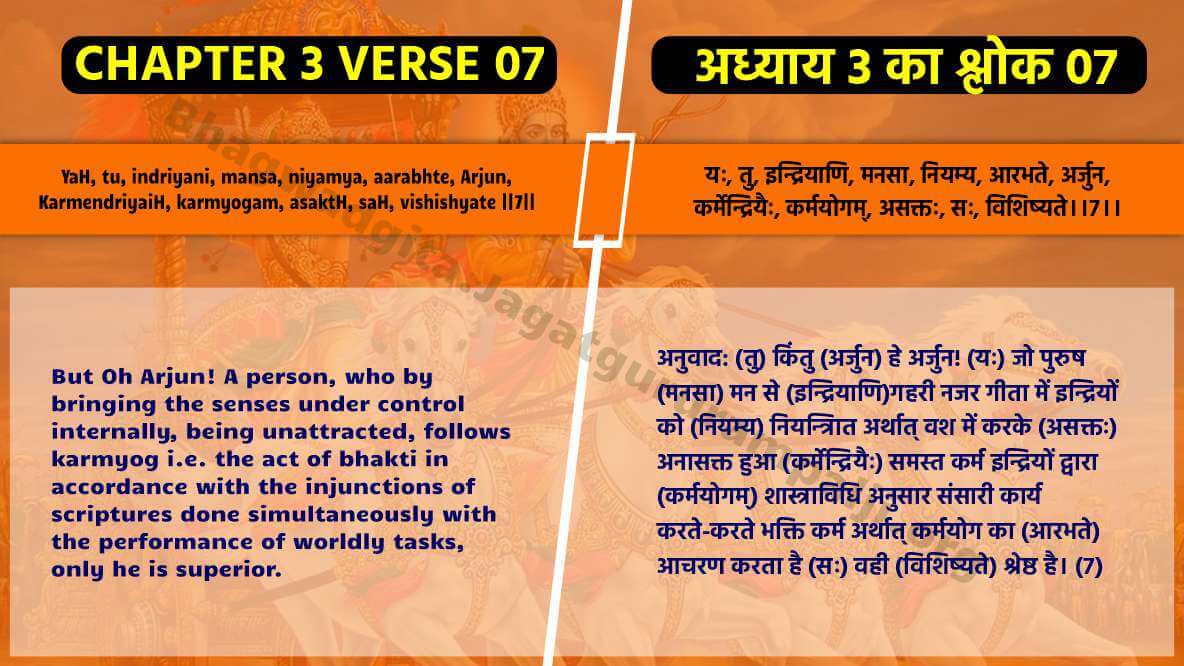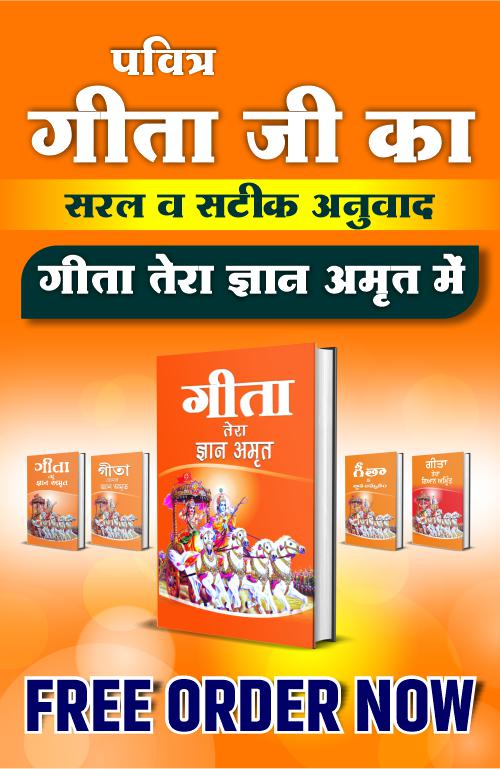
YaH, tu, indriyani, mansa, niyamya, aarabhte, Arjun,
KarmendriyaiH, karmyogam, asaktH, saH, vishishyate ||7||
Translation: (Tu) but (Arjun) O Arjun! (yaH) a person who (mansa) by mind/internally (indriyani) of senses (niyamya) by bringing under control (asaktH) unattracted (karmendriyaiH) by all the senses of actions (karmyogam) Karmyog i.e. act of bhakti in accordance with the injunctions of scriptures done along with performance of worldly tasks (aarabhte) follows (saH) only he (vishishyate) is superior. (7)
Translation
But O Arjun! A person, who by bringing the senses under control internally, being unattracted, follows karmyog i.e. the act of bhakti in accordance with the injunctions of scriptures done simultaneously with the performance of worldly tasks, only he is superior.
Important
The above-mentioned not-to-be-done hathyog (forceful way of worship) has been recommended in Gita Adhyay 6 Shlok 10 to 15. Therefore, Arjun is saying in this Adhyay 3 Shlok 2 that your contradictory statements are confusing me.
यः, तु, इन्द्रियाणि, मनसा, नियम्य, आरभते, अर्जुन,
कर्मेन्द्रियैः, कर्मयोगम्, असक्तः, सः, विशिष्यते।।7।।
अनुवाद: (तु) किंतु (अर्जुन) हे अर्जुन! (यः) जो पुरुष (मनसा) मनसे (इन्द्रियाणि)गहरी नजर गीता में इन्द्रियोंको (नियम्य) नियन्त्रिात अर्थात् वशमें करके (असक्तः) अनासक्त हुआ (कर्मेन्द्रियैः) समस्त कर्म इन्द्रियोंद्वारा (कर्मयोगम्) शास्त्रा विधि अनुसार संसारी कार्य करते-करते भक्ति कर्म अर्थात् कर्मयोगका (आरभते) आचरण करता है (सः) वही (विशिष्यते) श्रेष्ठ है। (7)
विशेष:- उपरोक्त न करने वाले हठयोग को गीता अध्याय 6 श्लोक 10 से 15 में करने को कहा है। इसलिए अर्जुन इसी अध्याय 3 के श्लोक 2 में कह रहा है कि आप की दोगली बातें मुझे भ्रम में डाल रही हैं।
